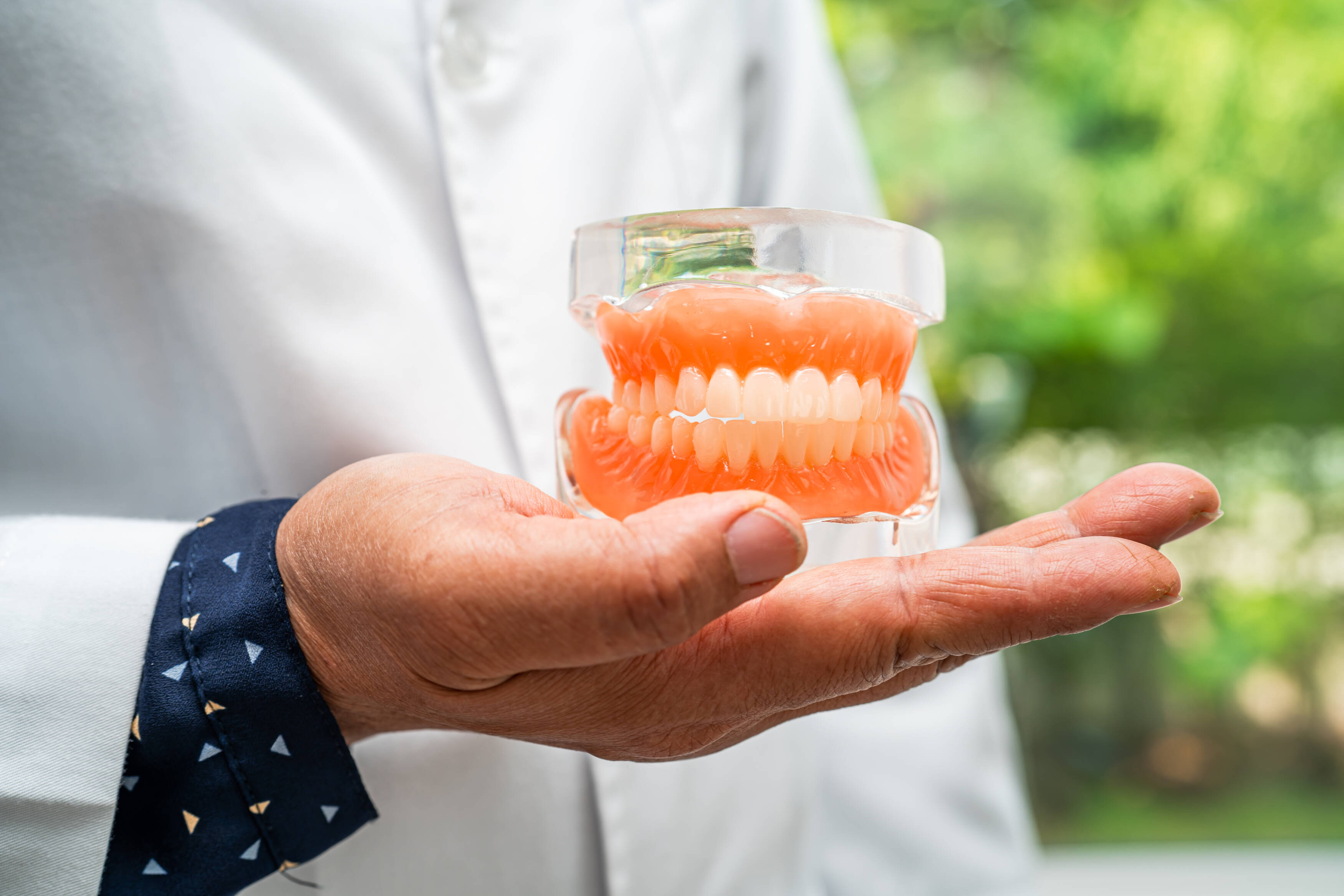
Dangers of Not Wearing Dentures + How to Keep Teeth Healthy
The human mouth is responsible for so many functions, including talking, smiling, laughing, eating, and conveying nonverbal communication with expressions. How hard would it be to perform these functions with extreme tooth loss or no teeth?
The presence or absence of teeth can mean the difference between giving up on life and really living your best life.
Common Questions About Not Wearing Dentures
One of the biggest dangers of not wearing dentures is that it can lead to other issues that perhaps you haven’t considered. There are so many everyday tasks that are difficult to perform without teeth. If you choose to walk around with no teeth, what could possibly go wrong? It turns out there are a lot of negative ramifications to not having teeth. Some of them will affect your general health.
Let’s explore some of the dangers of not wearing dentures.
What Are the Dangers of Not Wearing Dentures?
One of the most obvious issues or dangers of not wearing dentures is not being clearly understood by others. The presence of teeth in your mouth allows you to produce sounds and pronounce words that help you to communicate. Think about it. Many sounds in the English language are formed by placing the tip of your tongue on the back of your upper front teeth. Without teeth, it is nearly impossible to produce these same sounds.
This causes you to have to repeat yourself during oral communication, leading to confusion and misunderstandings with other people. People who are unable to effectively communicate often become withdrawn or depressed, which can lead to impaired mental health.
What Will Happen If I Don’t Wear My Dentures?
Going without dentures for extended periods of time allows the temporomandibular jaw joint (TMJ) to close too far, placing stains on the muscles, tendons, ligaments, and corresponding bone ridges that allow the jaw to function. With time, you may begin to experience symptoms that include popping of the joint, actual pain upon opening or closing, unexplained headaches, ear pain, or pain radiating to the temples or neck. Restoring the vertical dimension with dentures allows the jaw to be supported, protecting it from unnecessary discomfort.
While we are on the subject of bone structure, permanent bone loss occurs when you are missing teeth. The alveolar ridge that originally supported your natural teeth and now supports your dentures will dissolve away at a more rapid rate than normal if not stimulated every day by your dentures.
By not wearing dentures, the bone becomes flatter with time, making it much more difficult to wear and secure dentures and dental implants in the future. This leads to using denture adhesives of necessity just to keep dentures from moving around in your mouth.
Is It Okay to Eat Without Dentures?
One of the dangers of not wearing dentures is food becoming lodged in your throat, causing a choking hazard. Drinking or eating foods that require almost no chewing is not usually an issue, but foods that are tough to chew, such as pieces of meat or vegetables, can get caught in the windpipe (trachea) or the esophagus. It becomes an immediate concern if the food blocks the trachea, as it can lead to life-threatening choking. Food that becomes lodged in the esophagus doesn’t generally interfere with breathing or talking, but it is certainly uncomfortable and can cause the person to experience chest pain that often mimics a heart attack.
Patients who do not wear their dentures may also experience digestive issues. Dentures help to macerate and break foods into smaller pieces, allowing them to be further dissolved by digestive enzymes and acids present in the stomach. Large pieces of food are more difficult to breakdown and may pass through the digestive tract largely intact. This prevents the individual from receiving all of the benefits that healthy foods offer, including the absorption of vitamins and minerals necessary to sustain good health.
Even soft foods can be challenging to digest when you aren’t wearing removable dentures as needed.
What Happens to Your Face If You Don’t Wear Your Dentures?
A common motivator for many people to wear their dentures is the aesthetic benefits that dentures offer. Patients who have or are losing teeth and don’t wear their dentures have sagging skin and appear drawn or prematurely old, thanks to the lack of support for their facial muscles.
Well-fitting dentures smooth out wrinkles and help you to appear more vibrant and happy, giving you the confidence to interact with others in social interactions.
How Long Can I Leave My Dentures Out?
If you’ve ever worn removable dentures then you know that dentures should really only be left out of the mouth while sleeping in order to give your muscles an opportunity to rest and allow the gum tissue to be exposed to air, which promotes healthy tissue. Salivary flow naturally slows while sleeping. Reduced quantities of saliva allow bacteria and fungi to proliferate more readily. Dentures can become a petri dish for the growth of these organisms. This can lead to an increased propensity for respiratory infections, especially in patients with diminished immune function.
If you choose to leave dentures out of your mouth for days, weeks, or months, often they don’t fit as well as they once did because the contour of the tissue has changed slightly. You may notice gaps or sore spots that weren’t there previously, prompting an adjustment or a denture reline to improve the fit.
Tips for Denture Wearers: Healthy Teeth and Gums
If you still have some of your remaining teeth and wear partial dentures as replacement teeth, preserving your natural teeth by brushing, flossing, and regular dental health checkups is imperative for the function of your partial. Leaving the partial out of your mouth for an extended period can allow your natural teeth to shift slightly, causing the partial to no longer fit correctly.
Although complete denture wearers do not have their own natural teeth to worry about, keeping the gums healthy is vital for proper denture function. The gums must be cleaned daily to remove debris and bacteria and stimulated to promote blood flow to the tissue. This important oral health step can be accomplished with a soft-bristle toothbrush or washcloth.
Proper Denture Care with European Denture Center
Why would anyone choose not to wear their dentures? If dentures don’t fit comfortably or seem loose, some people will set them aside, assuming that there is no hope. Not so. That’s why working with an experienced denture professional, like those at European Denture Center, can improve your quality of life and restore your confidence.
From traditional partials and complete dentures to implant-supported dentures that function like natural teeth, we have solutions for everyone. Make your consultation appointment today with one of our caring denturists to explore all of your tooth replacement options!


